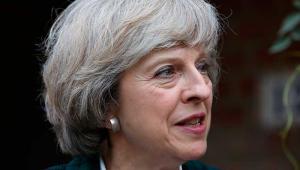In a speech to the Charity Commission today, May announced a range of measures including offering mental health first aid training to secondary schools, and training for employers and organisations to support staff who need to take time off.
May said: “For too long mental illness has been something of a hidden injustice in our country, shrouded in a completely unacceptable stigma and dangerously disregarded as a secondary issue to physical health.”
True parity for mental and physical health must be achieved, she said, and promised “to employ the power of government as a force for good to transform the way we deal with mental health problems right across society”.
Under the plans, the Care Quality Commission will lead a review of services for children and adolescents across the country. Separately, mental health campaigner Lord Stevenson and Paul Farmer, chief executive of the charity Mind, will conduct a review on improving support to people in the workplace.
Online symptom-check services will be expanded as a first stage before a face-to-face appointment, and more focus will be given to community care, with an £15m earmarked for this purpose. The aim is to put less emphasis on patients visiting GPs and A&E.
According to the government, one in four people have a mental health disorder at any given time, at a cost to the state of £105bn every year, with young people disproportionately affected.
Speaking on the BBC’s Today programme this morning, health secretary Jeremy Hunt, admitted there was a “black spot” in the area of mental health provision for children and young people.
His comments were backed up by the results of a survey conducted by the Prince’s Trust, published today, which revealed more than a quarter of young people (28%) don’t feel in control of their lives.
The Prince’s Trust Macquarie Youth Index canvassed over 2,000 young people aged 16-25 about issues relating to their wellbeing. It found that 45% of young people were stressed about body image and 61% feel that a lack of self-confidence holds them back. Moreover, over a third (37%) claim to feel stressed about how to cope at work or school.
May said that it was crucial to provide young people with “the help and support they need and deserve – because we know that mental illness too often starts in childhood and that when left untreated, can blight lives, and become entrenched.”
Malcolm Trobe, interim general secretary of the Association of School and College Leaders, said that, although some mental health training in schools may be beneficial, the largest problem for education providers is “accessing the local NHS specialist services that some children desperately need.”
Many schools already provide mental health support on site, but “they often face serious difficulties in referring young people to Child and Adolescent Mental Health Services. There is simply not enough provision”.
Trobe added: “The government’s plans have to be backed up with the funding needed to better support the provision of mental health services both in and outside school.”
Sean Duggan, chief executive of the NHS Confederation’s Mental Health Network, welcomed the emphasis on parity between mental and physical health.
He added: “Mental health services still need the government’s support to speed-up promised funding, much of which is delayed, but we are very pleased that mental health is being accepted as a major priority going forward.”



















